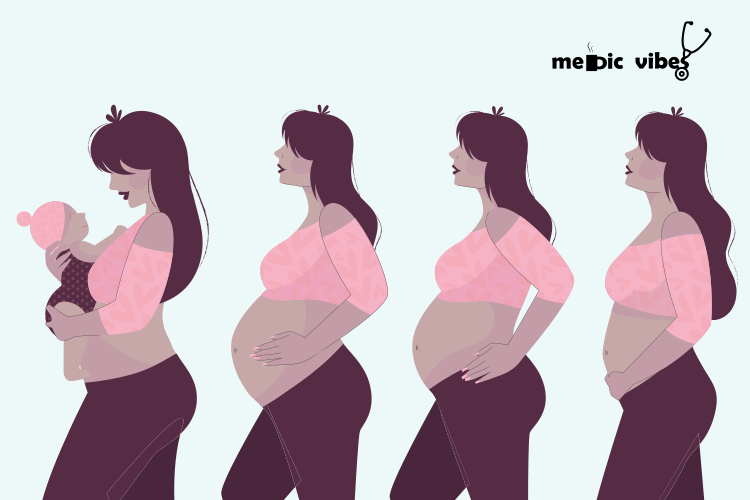When Nigerians get depressed (Part2: Gender) Following Hive stories

Depression vector created by pch.vector - www.freepik.com and Inkscape.org
Real depression is when u stop loving the things u love.
— feelings (@sadtruthwords) July 28, 2022
Chronic illness is a mjaor cause of depression. The individual fears for his/her life.
When Nigerians experience depression, it is usually a lady who has recently given birth. She has just given birth to a girl, and there is a preference for male infants. She recently gave birth and is suffering from postpartum depression.
When a Nigerian becomes depressed, domestic violence occurs; a woman is battered and stays in the relationship due to her cultural background.
Hello Everyone, My name is Ebingo Kigigha and I'm an aspiring Psychiatrist. When I'm not fooling around, I typically discuss Mental Health on my page. Today I will address the prevalence of depression in Nigeria.
People with depression have compared their condition to "dwelling in the dark" or "anticipating situations they cannot control" Depression alters a person's thoughts, emotions, and ability to do daily tasks. With increasing frequency, severity, and duration of symptoms, the likelihood that you have depression grows. There are numerous symptoms and indicators of depression that we might recognize in ourselves and others. Depression is a substantial risk factor for suicide.
When a depressed individual makes statements that raise concerns about a potential threat to their life, this should be treated extremely seriously. Intervention and assistance could save their lives.
When Nigerians Get Depressed is the topic I chose after reading an article about depression in Nigeria.
Depression, a problem of mental health that has caused several lives, affects 322 million people globally.
Among the symptoms are a sad affect, loss of interest or pleasure, diminished energy, feelings of guilt or low self-esteem, interrupted sleep or eating, and problems concentrating. In addition, it impairs a person's capacity to function and do daily duties, and can even result in suicide.
In the last post, we looked at some of the symptoms of depression while diving into the epidemiology of depression in Nigeria. This time, I want to discuss more gender differences in depression while continuing with the topic.

Gender-based statistics concerning depression in the country
Everywhere around the world, people go through clinical depression, however, there is variability between different sexes. The prevalence of depression is 50 per cent higher in women than in men, according to WHO. In Africa, 5.95 per cent of women and 4.9 per cent of men experience depression. Studies conducted in Nigeria have revealed that having a female gender increases the risk of developing depression.
But this discrepancy is not unexpected. Intimate partner violence and low socioeconomic status have also been identified as significant risk factors for depression, and these factors are more prevalent in females. In Nigeria, 28 per cent and 7 per cent of females, respectively, reported experiencing physical and sexual violence in their lifetimes, and over half of all women are illiterate and out of the labour force.
Postpartum depression is a type of depression that affects a lot of new mothers. According to studies, there are between 14 and 20 per cent of new mothers in Nigeria. In Nigeria, having a female baby and being a single mother are significant risk factors for postpartum depression. This highlights the part that society and culture play in the prevalence of health issues in the nation.
While I haven't noticed any immediate change in mood by any the new mother of girls I have had to interact with, I feel that it is an unsaid truth in Nigerian societies that men are seen as more important. Part of the reason for this is the fact that men have more options for jobs when they get older and appear to work to support the family they are from.
But all that is just how it appears on the surface and gender roles are a bigger and more complex issue than this post can dive into.
Antenatal depression, a type of depression that affects pregnant women before delivery, has also started to receive research attention. In an Abeokuta research, 24.5 per cent of pregnant women reported having depression.
Prenatal depression was reported to affect more than one-third of women who had unplanned pregnancies and about half of pregnant single women. This supports the requirement for more aggressive lobbying and behavioural education regarding the availability and application of family planning techniques.
In Literature and in lectures, we saw that women were more likely to contemplate suicide without committing their thoughts and whenever they do they use less violent means when compared to men (like poisons). Men, however, are more likely to go through with their plans and will do so using violent means to commit suicide (like headshots or fall from height).
Tips
Get things shaking!!!
I mean if you are lacking the motivation to get up from bed because you can not get your mind off things...try moving your body. Sometimes everything can seem out of control because we are not sure of what we can control anymore. Well, I can tell you for a fact that unless you are on muscle relaxants for surgery then you can move your body.
Do leg pumps on your bed...flex your elbow just try to keep your mind in control of your body.
Questions
- Are there other reasons why women may be more depressed than men?
- What do you think might be a solution to the problem of gender preferences?
- What can men do to make a difference?
Hive stories
I wrote to @aswita and @creativemary who wrote really amazing stories about dealing with depression in their lives and I wanted to feature their stories in my daily posts but they are yet to get back to me.
Nigerian papers include mostly stories of suicide that I feel would affect the general mood of this post making it sadder than it already is.
In conclusion
Depression in Nigerian women is more common because of certain factors such as Gender Preferences in the country, pregnancy and delivery and intimate partner violence.
As always, paying attention to the warning signs of depression can help save a life.

Get my merch...Just send me a message here so we can start working on it.

https://twitter.com/Ebingo10/status/1554121225860947968
The rewards earned on this comment will go directly to the people sharing the post on Twitter as long as they are registered with @poshtoken. Sign up at https://hiveposh.com.
Thanks for your contribution to the STEMsocial community. Feel free to join us on discord to get to know the rest of us!
Please consider delegating to the @stemsocial account (85% of the curation rewards are returned).
You may also include @stemsocial as a beneficiary of the rewards of this post to get a stronger support.